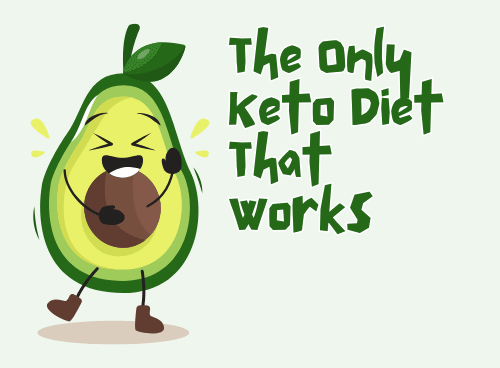
Why Compare Keto and the Mediterranean Diet?
For years, the keto diet has been seen as the ultimate fat-burning approach, while the Mediterranean diet has been celebrated for heart health and longevity. But more and more people are asking: what if you don’t have to choose?
A growing number of doctors and researchers suggest a hybrid approach — combining keto’s low-carb clarity with the Mediterranean diet’s heart-friendly, sustainable foods.
According to Health.com, studies show that this combination can support both weight loss and blood pressure control (Health.com).
What Is the Keto Diet?
Keto focuses on drastically reducing carbohydrates (usually under 20–30 grams/day) so the body shifts into ketosis — burning fat for fuel instead of glucose.
Benefits of Keto:
- Fast weight loss (especially in the short term).
- Reduced blood sugar spikes.
- Mental clarity for some people.
- May improve insulin sensitivity.
Challenges of Keto:
- Strict to follow; “keto flu” in the beginning.
- May feel restrictive in social situations.
- Hard to sustain long-term for many people.
What Is the Mediterranean Diet?
The Mediterranean diet is not about strict rules, but about eating patterns found in countries like Greece, Italy, and Spain. It emphasizes:
- Olive oil as the main fat.
- Plenty of vegetables, fruits, legumes, and whole grains.
- Moderate fish and poultry.
- Minimal red meat and sugar.
- Wine in moderation.
Benefits of Mediterranean:
- Proven to support heart health.
- Linked to reduced risk of stroke and dementia.
- Easier to follow socially and culturally.
- Backed by decades of research.
Challenges of Mediterranean:
- Higher carb intake may not work for those with insulin resistance.
- Weight loss may be slower than keto.
Keto vs Mediterranean: Key Differences
| Aspect | Keto Diet | Mediterranean Diet |
|---|---|---|
| Carbs | Very low (20–30g/day) | Moderate (whole grains, legumes) |
| Fats | High fat (butter, coconut oil, cheese) | Healthy fats (olive oil, nuts, fish) |
| Protein | Moderate, often animal-based | Moderate, more fish & plant proteins |
| Health Focus | Fat loss, blood sugar control | Heart health, longevity |
| Mental Health | Potential clarity, less anxiety | Potential stability, balanced mood |
Can They Work Together? The Hybrid Approach
This is where it gets exciting: the Keto-Mediterranean Hybrid.
It keeps carbs lower than the traditional Mediterranean plan, but swaps out heavy saturated fats (like bacon and butter) for olive oil, fish, and avocados.
What it looks like in practice:
- Protein: salmon, sardines, chicken, eggs.
- Fats: olive oil, avocado, nuts, seeds.
- Carbs: non-starchy vegetables, small portions of berries.
- Extras: herbs, spices, tea, occasional red wine.
Researchers call this combination sustainable ketosis — where the benefits of fat-burning meet the long-term heart and brain support of the Mediterranean diet.
Mental Health and Brain Benefits
Both diets may support mental health, but in different ways.
- Keto: stabilizes blood sugar, provides ketones as alternative brain fuel. Studies suggest potential benefits for mood and focus.
- Mediterranean: rich in antioxidants and omega-3s, which may reduce inflammation and support brain aging.
Together, the hybrid approach may reduce risks of anxiety, depression, and dementia (The Times).
My Healing Perspective
I started with Lazy Keto — simple, forgiving, no constant tracking. Later, I discovered how keto could support not just my body, but my mind (Keto for Mental Health).
But as time passed, I longed for something more balanced. That’s when I found inspiration in the Mediterranean approach — adding more olive oil, herbs, and colorful vegetables.
For me, it wasn’t about “keto vs Mediterranean.” It was about creating a healing hybrid — one that feels like nourishment, not punishment.
Practical Tips for Trying a Hybrid
- Swap fats: choose olive oil instead of butter.
- Eat fish twice a week: salmon, sardines, or mackerel.
- Load up on vegetables: leafy greens, zucchini, cucumbers, peppers.
- Limit grains and sugar: keep carbs low, but don’t fear berries.
- Add rituals: pair meals with mindful habits — journaling, reading, walking your dog.
Challenges of the Hybrid
- Requires awareness of carbs (not as strict as keto, but more than Mediterranean).
- Not as well studied as either diet alone.
- May feel confusing at first.
But for many, it’s the most sustainable middle ground.
Closing Thoughts
Keto vs Mediterranean is not about choosing a winner. Both diets have unique strengths, and together they may offer the best of both worlds.
If keto feels too strict, and Mediterranean feels too carby, the hybrid approach could be your bridge — supporting weight, heart health, and even mental clarity.
Healing with food isn’t about rules. It’s about building a lifestyle you can sustain with joy.
👉 Which diet resonates more with you — keto, Mediterranean, or a blend of both? Share your thoughts and experiences in the comments.
